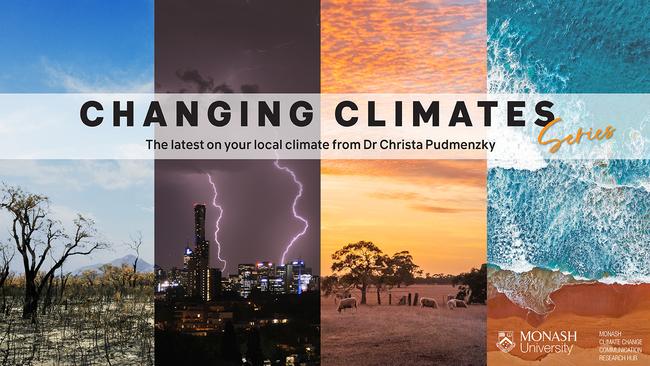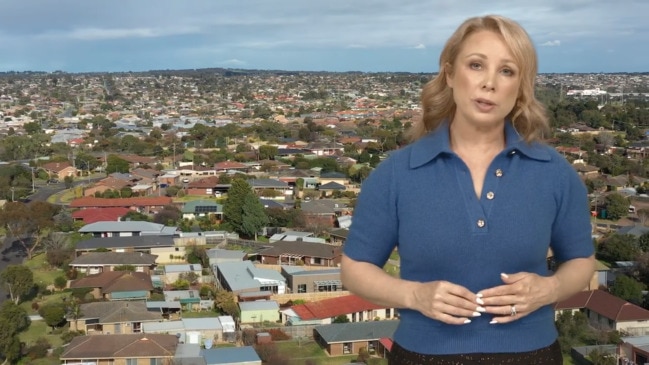Powerful policies for an electrified future
Amping up household electrification policies could spark big benefits, explains host of Ipswich's Changing Climates series, Dr Christa Pudmenzky.

Hyperlocal
Don't miss out on the headlines from Hyperlocal. Followed categories will be added to My News.
From heating our homes to cooking our food, gas has played an important role in everyday life for a long time.
However, each time we use gas to power our homes, we also warm our planet.
This is because burning fossil fuels like gas emits carbon dioxide which traps heat in our atmosphere and contributes to climate change.
To avoid this, Aussies are beginning to make the switch to a cleaner, greener way of living in the form of household electrification.
In a nutshell, electrification involves replacing old gas-guzzling appliances with electric ones which can be powered by renewables like wind and solar.
And, according to the Monash Climate Change Communication Research Hub's 2023 'Switching On' report, the shift comes with a variety of economic, health, and environmental benefits.
However, the process of electrifying our homes can be a little daunting especially when we consider the installation costs.
Luckily for us, some great programs are already up and running to help.
For instance, the Queensland Government's Solar for Remote Communities program supports the replacement of diesel generators with stand-alone renewable generation and storage.
While initiatives like this are a good start, developing more accessible policies and programs across all levels of government will be vital for supporting this transition.

Racing to electrify
Currently, Australia has no cohesive plan for electrifying households, leading to a patchwork style policy approach.
The Monash 'Switching On' report took a look at these government policies to understand electrification progress across the country and determine future focus areas.
The analysis focussed on five key metrics – financial support, energy justice, health focus, skills and training, and emissions reduction – with an overall score provided.
If we zoom in on Queensland, we see greater focus needs to be placed on health, training and household emission reduction-related policies.

It is important to note there is nuance to these scores.
For instance, the Northern Territory has low gas usage, but at the same time has very few policies to support household electrification.
However, overall these scorecards showcase there is a lot of room for improvement across the board and that a comprehensive, national approach would likely help streamline these changes.
Plugging the gaps
To fully electrify Australia we'll need all hands on deck.
Building workforce capacity is both a challenge and an opportunity as Australia faces the replacement of 13.2 million gas appliances.
Investment into skills and training programs will help address the current shortages of electricians and plumbers in every state and territory, and provide employment to thousands of Aussies.
Household emissions reduction scores can also be improved.
This could be achieved by tweaking existing building certification schemes and energy efficiency programs to ban the installation of gas and instead incentivise electricity.
When it comes to health, a national indoor air quality framework would provide clear guidelines for keeping air safe in our homes.
Overall, policy and program development should put justice and accessibility front of mind.
This will ensure even our most vulnerable communities have access to the many benefits of household electrification.
Powering forward
Though electrifying Aussie homes is a mammoth task, starting small can still spark big benefits.
Beginning by replacing just one or two gas appliances will limit the toll on your wallet and kickstart your energy bill savings.
Even something as simple as installing curtains and turning appliances off when they are not in use can help reduce your energy bills while we wait for policy to catch up.
Check out the Monash's 'Switching On' report to learn about programs and initiatives available in Queensland or head to Rewiring Australia for more information.
Ultimately, this transition will help Australia charge forward towards a brighter future and drive down our emissions.
Hear from your community:

Want more information on how your climate is changing? Check out the last article in this series.
Dr Christa Pudmenzky is a climate scientist at the University of Southern Queensland.
This column is part of a collaboration between Monash University and News Corp to deliver hyperlocal weather and climate information.


